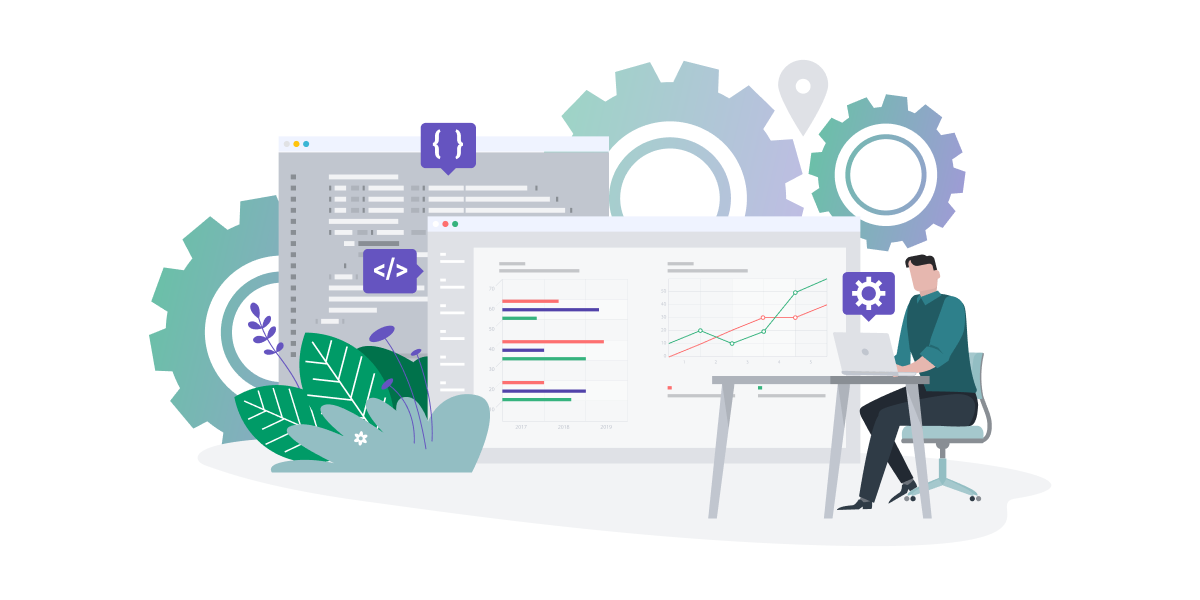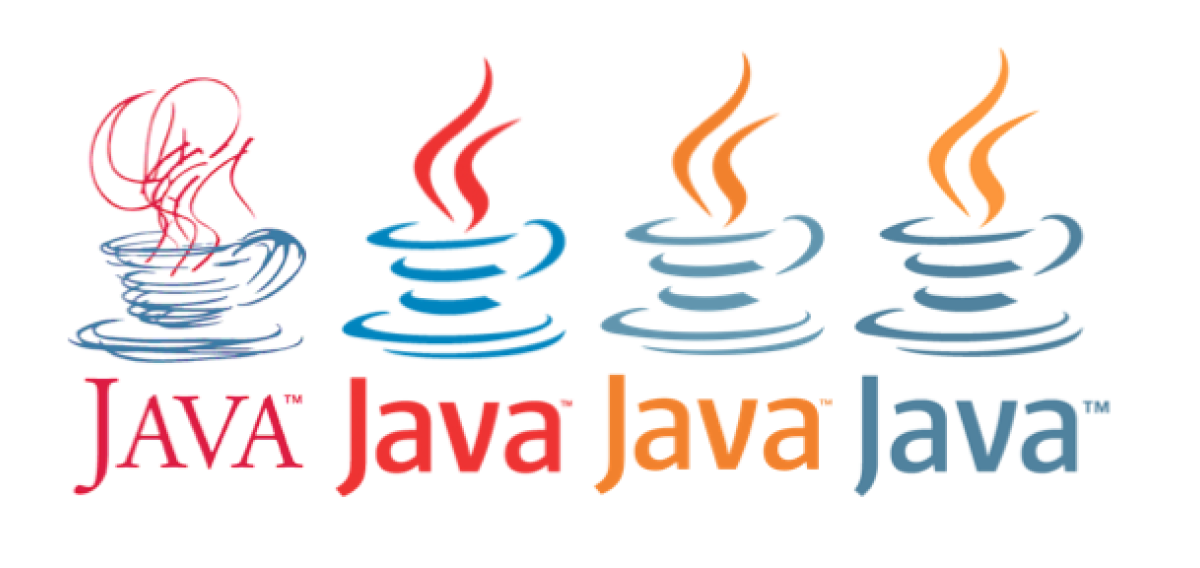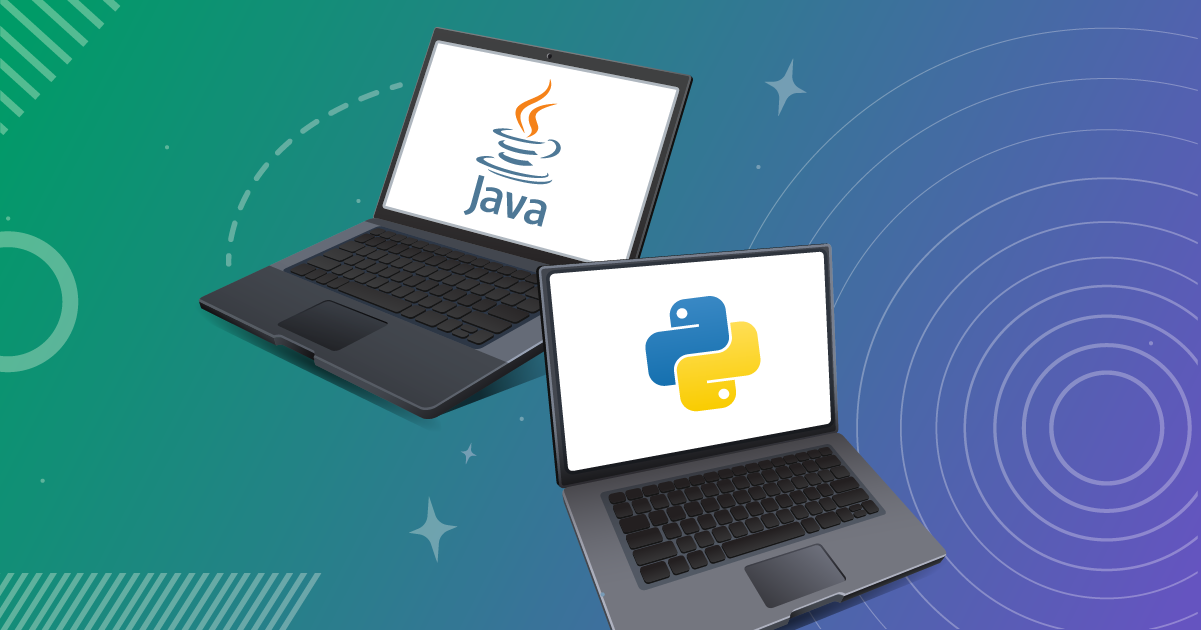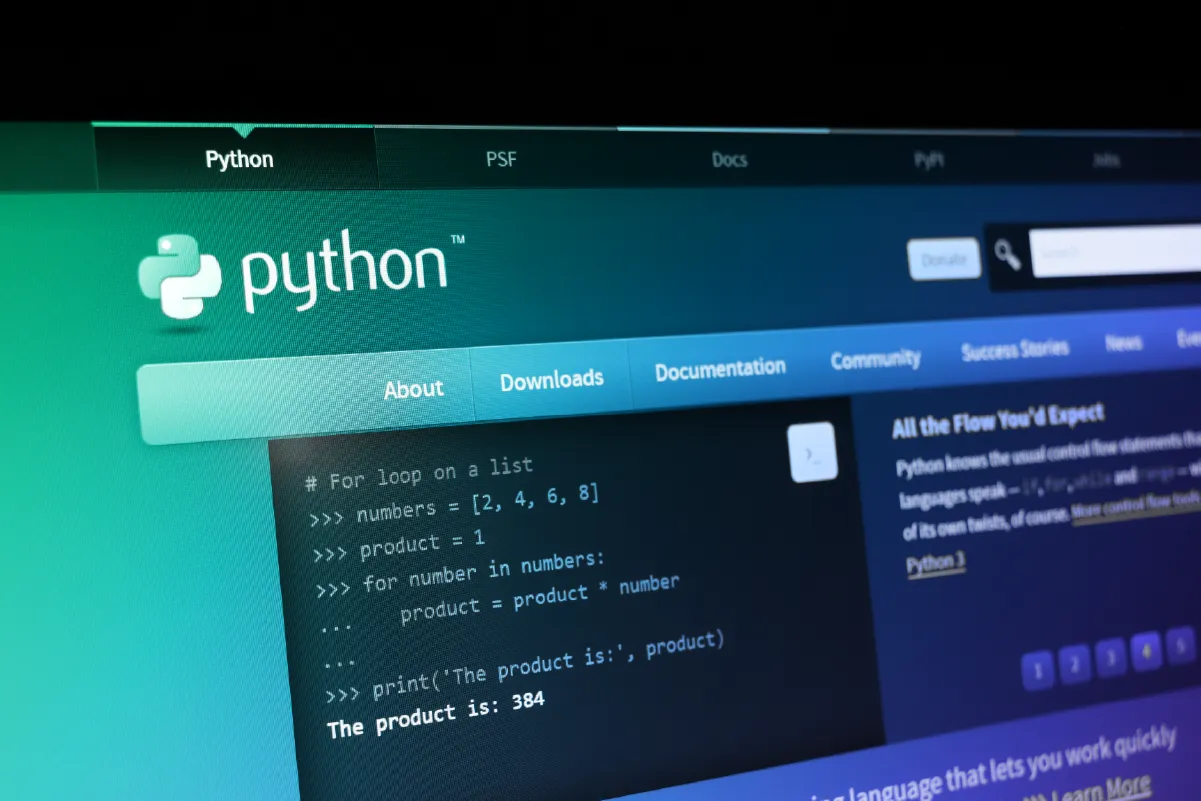Choosing a programming language isn't a one-size-fits-all decision. When it comes to selecting a programming language for your project, there are multiple options to consider, each with its own unique attributes.
The right decision depends on multiple factors: your project's complexity, security requirements, team expertise, ecosystem maturity, and long-term maintainability. With 2026 bringing historic shifts, understanding the current landscape is essential.
This guide examines the most in-demand programming languages for 2026, emerging technologies worth watching, declining languages to avoid, and practical strategies for selecting the optimal tech stack for your project.

Top Programming Languages of 2025
The following languages are some of the most in-demand and commonly used on our projects for various reasons, such as their versatility, robustness, or client preference, based on data from GitHub's 2025 State of the Octoverse, RedMonk's January 2025 rankings, and Stack Overflow's 2025 Developer Survey.
2025 brought historic changes: TypeScript became the #1 language on GitHub by contributor count for the first time, surpassing both Python and JavaScript. This reflects an industry-wide shift toward type-safe development, especially as AI-assisted coding tools become standard.
Meanwhile, Python solidified its position as the backbone of AI/ML development, and C# posted its strongest growth in years, challenging Java's enterprise dominance.
Keep in mind — rankings vary by methodology — GitHub measures code activity, RedMonk combines code with developer discussions, and Stack Overflow tracks usage. However, the following languages consistently rank in the top tier across all major indices:

Python
Python remains one of the world's most popular programming languages, ranking #1 in the TIOBE Index, #2 on both GitHub and RedMonk, and used by 57.9% of developers according to Stack Overflow's 2025 survey. It is an extremely versatile language used for web development, artificial intelligence, data analysis, automation, and scientific computing.
Python's dominance in AI and machine learning is unmatched as it powers nearly half of all AI-tagged repositories on GitHub (582,000+, up 50.7% YoY), making it the clear choice for machine learning pipelines, generative AI, and data science. Major tech companies, including Google, Netflix, Meta, and Amazon, rely on Python across their tech stacks.
Known for its simplicity and readability, Python has an extensive library ecosystem including Django, Flask, NumPy, Pandas, TensorFlow, and PyTorch. This makes it accessible to beginners while remaining powerful for enterprise and fintech applications. As AI adoption accelerates across every industry, Python developers are in exceptionally high demand.

JavaScript
JavaScript remains the most widely used programming language in the world, ranking #1 on RedMonk, used by 66% of developers according to Stack Overflow's 2025 survey, and powering over 98% of all websites worldwide. It is the essential language for both front-end and back-end web development, enabling interactive user experiences and server-side functionality through Node.js.
While JavaScript added 427,000 contributors on GitHub in 2025 (+24.79% YoY), its growth has moderated as many developers shift toward TypeScript for new projects.
However, JavaScript's ecosystem remains unmatched in scale, and combined with TypeScript, the JavaScript ecosystem accounts for over 4.5 million developers and continues to be the foundation of modern web development.
JavaScript's versatility extends across the entire development stack. Major frameworks like React, Vue, Angular, and Node.js have made it possible to build everything from dynamic web applications to mobile apps (React Native) and server-side APIs using a single language. This ubiquity means JavaScript skills are transferable across nearly any web-related project.
With its massive community, extensive library ecosystem (npm hosts over 2 million packages), and universal browser support, JavaScript developers remain in exceptionally high demand across startups and enterprises alike.

Typescript
TypeScript made history in 2025, becoming the #1 most-used programming language on GitHub by contributor count for the first time ever—surpassing both Python and JavaScript.
With over 2.6 million contributors (a remarkable 66% year-over-year increase) and more than 5.3 million new repositories created, TypeScript has cemented its position as the default choice for modern development.
This surge reflects a fundamental shift in how developers build software. TypeScript enhances JavaScript with static typing, making it ideal for large, complex applications where reliability and maintainability are critical.
Its type system catches errors before code reaches production, which is a feature that's become even more valuable as AI-assisted coding tools like GitHub Copilot gain adoption, since typed languages help identify and prevent AI-generated errors earlier in the development pipeline.
Nearly every major framework now scaffolds projects in TypeScript by default, including Next.js, Angular, SvelteKit, Astro, Remix, and more. This means developers choosing these frameworks are automatically working in TypeScript from day one. The language's combination of JavaScript's ubiquity with strong type safety has made it indispensable for web, mobile, and server-side applications.
Demand for TypeScript developers is at an all-time high and expected to continue growing throughout 2026 as more organizations recognize that typed codebases scale better, onboard new developers faster, and integrate more safely with AI development tools. For developers looking to stay competitive, TypeScript knowledge will be a huge asset.

Java
Java remains a dominant force in enterprise development, ranking #3 on RedMonk, #4 on GitHub and TIOBE, and used by 29.4% of developers according to Stack Overflow's 2025 survey.
Java added 174,705 contributors on GitHub in 2025 (+20.73% YoY), demonstrating steady, enterprise-driven growth. Its focus on security, reliability, and cross-platform compatibility makes it the backbone of countless business-critical systems.
It is a mature, general-purpose programming language widely used for building large-scale, mission-critical applications in finance, healthcare, e-commerce, and government sectors. Major companies, including Airbnb, Google, Netflix, Amazon, and financial institutions worldwide, rely on Java for their core infrastructure.
While C# is emerging as a strong competitor in many domains, Java still dominates the financial sector and maintains a significant presence across Android development, backend services, and cloud-native applications. Its mature ecosystem includes powerful frameworks like Spring, Hibernate, and Apache, along with exceptional tooling and long-term support (LTS) releases that enterprises depend on.
Java's "write once, run anywhere" philosophy and decades of proven reliability ensure continued demand for Java developers, particularly those with expertise in modern Java features, microservices architecture, and cloud platforms.

C#
C# is experiencing remarkable growth in 2025, ranking #5 across TIOBE, RedMonk, and GitHub—and posting the fastest growth rate of any major language (+2.67% in TIOBE). This surge has positioned C# to potentially surpass Java for the first time in TIOBE's history, reflecting a fundamental shift in the enterprise development landscape.
C# added 136,735 contributors on GitHub in 2025 (+22.22% YoY), driven by Microsoft's transformation of the language into a fully cross-platform, open-source powerhouse. The language offers all the features developers expect, such as pattern matching, records, top-level statements, and nullable reference types, while being backed by Microsoft's continued investment and innovation.
As the primary language for .NET development, C# excels at building enterprise-level applications, web and mobile apps (via Xamarin and MAUI), cloud services on Azure, and game development with Unity. It's commonly used in fintech, healthcare, and e-commerce for mission-critical systems requiring security, performance, and scalability. C# also powers web scraping applications for market research, data extraction, and business intelligence.
With its modern feature set, robust ecosystem, and cross-platform capabilities, C# developers are increasingly sought after as organizations modernize their tech stacks or choose between C# and Java for new projects.
Softjourn's skilled C# developers can help you build robust, enterprise-level applications.

PHP
PHP presents an interesting paradox in 2025: it ranks #4 on RedMonk (reflecting its massive existing codebase and ongoing maintenance work), yet sits at #16 in TIOBE with a slight declining usage (-0.16%). According to Stack Overflow, PHP is used by 18.9% of developers. Its story is one of a mature language transitioning from widespread dominance to specialized relevance.
PHP powered the early web and continues to run a significant portion of the internet, particularly through WordPress (which powers over 40% of all websites), Magento, Drupal, and other established platforms. This creates sustained demand for PHP developers skilled in maintaining, securing, and extending these systems.
Laravel, PHP's modern framework, continues to drive new development with its elegant syntax and robust features, keeping PHP viable for web applications.
However, PHP's popularity has declined as organizations have begun to favor JavaScript/Node.js, Python, or TypeScript for new greenfield projects. Modern alternatives offer better performance, stronger typing systems, and more active innovation.
PHP's use is increasingly concentrated in specific scenarios: maintaining legacy systems, WordPress/e-commerce development, and cost-effective solutions for small to medium-scale web applications.
Despite the decline, PHP's active community continues evolving the language with modern features, and its lower hosting costs and mature ecosystem ensure it remains a practical choice for certain projects.

Programming Languages On the Rise
Rust
Rust earned the title of "most admired programming language" in 2025 with a 72% admiration rating, reflecting widespread developer enthusiasm for its unique approach to memory safety and performance.
Ranking #19 on RedMonk with 14.8% usage on Stack Overflow, Rust is steadily gaining traction as the preferred alternative to C and C++ for system programming, embedded systems, and performance-critical applications.
Rust eliminates entire categories of bugs (null pointer dereferencing, data races, buffer overflows) at compile time without sacrificing performance. This makes it particularly valuable in security-sensitive domains like fintech, blockchain, cloud infrastructure, and anywhere reliability is non-negotiable.
Major organizations including Microsoft, Amazon (AWS), and Google are increasingly adopting Rust for systems-level components.
GoLang
Go remains a powerhouse for cloud infrastructure and distributed systems, ranking #12 on RedMonk and used by 16.4% of developers. While it dropped from #7 to #11 in TIOBE's November 2025 index, Go's practical importance hasn't diminished since it powers critical DevOps and infrastructure tools, including Kubernetes, Docker, Prometheus, and Terraform.
Go's strength lies in building scalable, concurrent systems with exceptional performance. Its simple syntax, fast compilation, built-in concurrency primitives (goroutines), and robust standard library make it ideal for microservices, APIs, DevOps tools, and cloud-native applications.
Companies seeking to build reliable backend infrastructure continue to seek Go developers, and its admiration rating of 56.5% reflects sustained developer satisfaction.
Swift
Swift has firmly established itself as the undisputed standard for iOS and macOS development, backed by Apple's full support and continuing evolution. Ranking #11 on RedMonk with 5.4% usage and a 65.9% admiration rating, Swift combines clean syntax, memory safety, and performance that make it a favorite among mobile developers.
With the iOS app market thriving and businesses prioritizing mobile-first strategies, Swift expertise remains critical. The language's evolution continues with improved concurrency models, better package management, and expanding capabilities beyond Apple's ecosystem into server-side development.
Kotlin
Kotlin has become the official standard for Android app development, endorsed by Google as the preferred language for the platform. Ranking #14 on RedMonk (tied with Scala and Shell) and used by 10.8% of developers, Kotlin offers concise syntax, null safety, and seamless interoperability with Java. This makes it easier to write reliable Android applications while maintaining compatibility with existing Java codebases.
Beyond mobile, Kotlin is expanding into server-side development through frameworks like Ktor and Spring Boot, along with cross-platform mobile development via Kotlin Multiplatform Mobile (KMM). With 51% admiration and Google's backing, Kotlin developers are increasingly sought after for Android projects and modern backend services.

Programming Languages on the Decline
While some languages are on the rise, others are seeing decreased usage due to evolving industry demands, modern alternatives, or shifting developer preferences. Here are a few languages that are declining and the reasons behind it:
COBOL
COBOL remains in use for legacy systems, particularly in banking and government, but its relevance is confined to maintaining these aging systems. With fewer new developers learning COBOL, its long-term viability is uncertain.
Objective-C
With the introduction of Swift in 2014, Objective-C has steadily declined as Apple encourages developers to adopt Swift for iOS and macOS development. While legacy projects still rely on Objective-C, its use in new projects has sharply diminished.
Perl
Once a go-to language for scripting and web development, Perl has seen a significant decline over the past decade due to Python and Ruby adoption. However, TIOBE's 2025 data shows a surprising uptick (#9, +1.16%), likely driven by legacy system maintenance and niche DevOps scripting use cases.
Visual Basic (VB.NET)
Widely used in the early 2000s for Windows applications, VB.NET is still used, but is now considered outdated. Microsoft’s focus on C# and other modern frameworks has left VB.NET with limited support and declining adoption.
Working with Legacy Systems?
Many businesses need to maintain critical systems built on older technologies while planning for the future. Softjourn connects you with experienced developers who specialize in legacy languages and provides code audits and modernization roadmaps to help you transition to modern frameworks without disrupting operations. Whether you need ongoing support for aging codebases or a strategic migration plan, we're here to help.

Choosing a Programming Language
When Your Project Has Specific Requirements
In some cases, your project’s technical requirements will determine which language to proceed with. For example, if the project is AI/ML-based, then it may be a clear decision to use Python, or if you are building an iOS application, then Swift might be the most well-suited.
Business constraints may also dictate which language to use for your project. If your existing team is already proficient in a programming language, you will likely want to select the same language to save time on team catch-up or hiring new developers.
Similarly, if you are extending an existing system written in a programming language, it is advised to choose the same language, assuming it is considered relevant and modern.
If Your Project Doesn’t Have Specific Requirements
If you are developing your project from scratch, you'll likely have flexibility in choosing a language, since you may not have specific requirements you need to follow.
Often, multiple programming languages can be equally suitable for developing an application.
For instance, a backend application could be implemented using Java, .NET, or Node.js, while a web front-end might involve choosing between JavaScript and TypeScript. In such cases, you'll want to evaluate factors like the availability of skilled developers, the project's specific needs, and the long-term maintainability of the chosen technology.

Using Multiple Languages
Using multiple programming languages in a project has several advantages. It allows developers to select the most appropriate language for specific tasks, which can lead to more efficient and effective development.
This approach also provides opportunities for developers to expand their skillsets and increases hiring flexibility by enabling access to a broader pool of talent with expertise in different languages.
However, there are also challenges to consider. Using multiple languages can increase the complexity of a project, requiring more maintenance and potentially leading to incompatibilities between tools or libraries. It can also make standardization across applications more difficult, which is essential for smooth operation and long-term maintenance.

What to Consider in a Programming Language
Whether you're developing a new project from scratch or extending an existing system, we can help you select a language that suits the needs of your project.
Following a discovery phase, we will analyze your project goals, technical and business requirements, consider your resources, and propose the optimal tech stack for your project.
Additional Aspects to Consider
Language-domain match: See what others in your industry are using to build their platforms.
Maturity of the Language: If a language has a library that solves your domain problem, it might be worth it to put up with some flaws in the language. Additionally, more mature languages may have more reference material to draw on and more collaborators.
Efficiency: Efficient compilers or interpreters are what make languages “fast.” It is important to review the interpreters or compilers for your language to ensure it is efficient.
Project size: Match the language to your project's complexity. Large enterprise applications benefit from statically-typed languages (Java, C#, TypeScript) that scale well with larger codebases and teams. Smaller projects or MVPs may prioritize rapid development with Python, Ruby, or PHP.
The Tools and Libraries Available: Consider the availability of tools and libraries for languages, as they can greatly facilitate the development process and provide access to a wide range of functionality.
Your Current Team: Consider the skills and expertise of the people you already have on your team who are available to work on the project.
Availability of Developers: It's important to consider the reliability and popularity of the language, as well as the availability of developers on the market who are familiar with it. Keep in mind that hiring may be easier and less costly for languages that are oversaturated with developers in comparison to lesser-used, outdated, or unpopular languages.
If you need experienced developers who can contribute from day one, Softjourn has skilled programmers proficient in all of these languages, ready to integrate seamlessly into your project.
Programming Language Comparison Table
| Feature | TypeScript | Python | JavaScript | Java | C# | PHP | Rust | Go | Swift | Kotlin |
|---|---|---|---|---|---|---|---|---|---|---|
| Type System | Static | Dynamic | Dynamic | Static | Static | Dynamic | Static | Static | Static | Static |
| Object-Oriented | Yes | Yes | Yes | Yes | Yes | Yes | Yes | Partial | Yes | Yes |
| Functional Programming | Yes | Yes | Yes | Yes | Yes | Partial | Yes | Partial | Yes | Yes |
| Platform Independence | Yes | Yes | Yes | Yes | Yes | Yes | Yes | Yes | No (Apple) | Yes |
| Garbage Collection | Yes | Yes | Yes | Yes | Yes | Yes | No (Manual) | Yes | Yes (ARC) | Yes |
| Memory Safety | Moderate | Moderate | Moderate | High | High | Low | Very High | High | High | High |
| Popular Frameworks | React, Angular, Next.js, Vue | Django, Flask, FastAPI | React, Vue, Express, Node.js | Spring, Hibernate, Micronaut | ASP.NET Core, Blazor, MAUI | Laravel, Symfony, WordPress | Tokio, Actix, Rocket | Gin, Echo, Fiber | SwiftUI, Vapor | Ktor, Spring Boot |
| Performance | High | Moderate | Moderate | High | High | Moderate | Very High | High | High | High |
| Community | Very Large | Very Large | Very Large | Large | Large | Large | Growing | Large | Medium | Growing |
| Syntax Simplicity | Moderate | High | High | Moderate | High | High | Complex | High | High | High |
| Learning Curve | Low-Moderate | Low | Low | Moderate | Low-Moderate | Low | Steep | Low-Moderate | Moderate | Low |
| Database Integration | TypeORM, Prisma | SQLAlchemy, Django ORM | Sequelize, Prisma | JDBC, JPA | Entity Framework, Dapper | PDO, Eloquent | Diesel, SQLx | GORM, sqlx | Core Data, GRDB | Exposed, Room |
| Web Development | Yes | Yes | Yes | Yes | Yes | Yes | Yes | Yes | Yes (server-side) | Yes |
| Mobile Development | React Native | Kivy, BeeWare | React Native | Android SDK | MAUI, Xamarin | No | No | No | iOS/macOS native | Android native, KMM |
| Scripting | Yes | Yes | Yes | No | No | Yes | No | No | No | Limited |
| Primary Use Cases | Web/mobile apps, APIs, full-stack | AI/ML, data science, backend, automation | Frontend, full-stack, APIs | Enterprise apps, Android, backend | Enterprise apps, cloud, games | Web apps, CMS, legacy systems | Systems programming, embedded, performance-critical | Cloud infrastructure, DevOps, microservices | iOS/macOS apps, mobile-first | Android apps, backend, cross-platform mobile |
| Best For Security | High (type safety) | Moderate (vulnerabilities possible) | Moderate (vulnerabilities possible) | High (mature security) | High (mature security) | Low-Moderate (common vulnerabilities) | Very High (memory safety) | High (concurrent safety) | High (memory safety) | High (null safety) |

Let Us Help You Select the Best Tech Stack
Choosing the right programming language impacts everything: development speed, long-term maintenance, team hiring, and project success. With the programming landscape evolving faster than ever and the developer talent pool shifting rapidly, making the right choice may require specialized expertise.
Softjourn brings over 20 years of experience helping companies select and implement optimal tech stacks. We provide personalized recommendations based on your specific requirements and can extend your team with skilled developers across all major languages.
Ready to make the right technology decision? Contact us today for a free consultation.

























